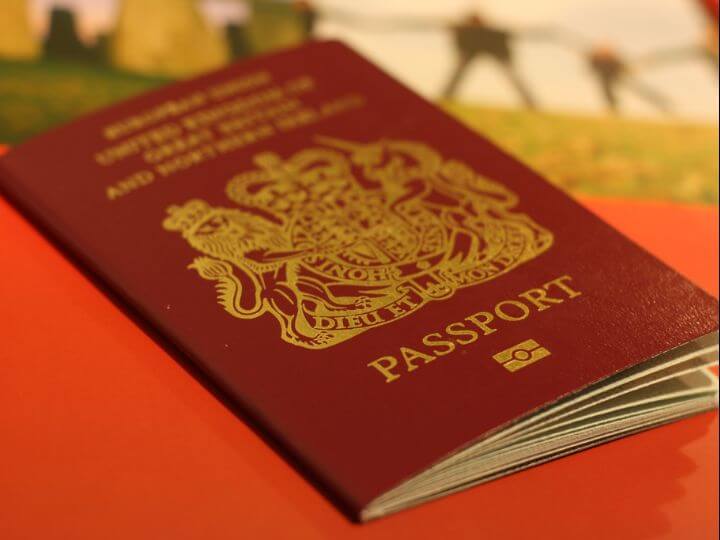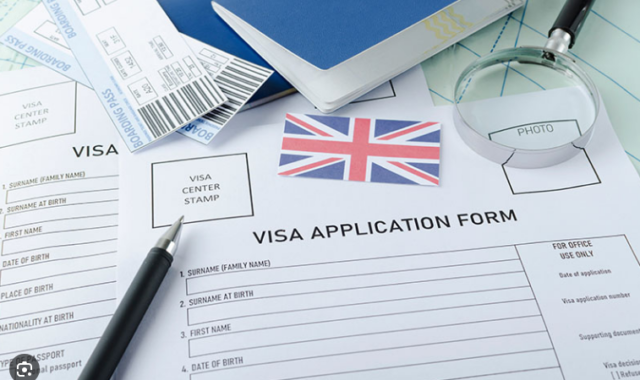Le Royaume-Uni a toujours été une plaque tournante pour les entreprises internationales, grâce à son économie stable et développée. Le gouvernement encourage continuellement les investissements étrangers dans le pays, ce qui en fait une destination attrayante pour les nouvelles entreprises qui souhaitent s'installer ou étendre leurs activités.
Toutefois, si vous envisagez de faire des affaires au Royaume-Uni, vous devrez obtenir un visa d'affaires. Ce visa permet aux non-résidents britanniques d'entrer dans le pays à des fins professionnelles, par exemple pour assister à des conférences ou à des réunions, ou pour créer de nouvelles entreprises.
Dans ce guide, nous examinerons les conditions d'obtention d'un permis de conduire. Visa d'affaires pour le Royaume-Uni et vous fournir toutes les informations nécessaires pour faciliter le processus de candidature.
Pourquoi un visa d'affaires est-il nécessaire ?
Comme indiqué précédemment, un visa d'affaires est nécessaire pour les non-résidents britanniques qui souhaitent entrer dans le pays à des fins professionnelles. Il peut s'agir de participer à des conférences, des réunions, des formations, des expositions ou de créer de nouvelles entreprises.
Prêt à demander votre visa pour le Royaume-Uni ?
Cliquez sur le bouton ci-dessous pour entamer une procédure de demande de visa simple et sécurisée.
🇬🇧 DEMANDER UN VISA UK ETA ICIUn visa d'affaires vous permet de séjourner au Royaume-Uni pendant une période déterminée en fonction de l'objet de votre visite et du type de visa. Il vous permet également d'entrer plusieurs fois dans le pays pendant cette période, ce qui vous permet de mener vos activités professionnelles sans aucune restriction.
En outre, un visa d'affaires vous permet d'explorer le marché britannique et d'établir éventuellement des partenariats ou des collaborations avec des entreprises locales.
Types de visas d'affaires au Royaume-Uni
Il existe différents types de visas d'affaires britanniques, qui dépendent de la nature et de la durée de votre visite. Les plus courants sont les suivants :
- Visa de visiteur standard: Ce visa permet aux personnes de se rendre au Royaume-Uni à des fins professionnelles, par exemple pour assister à des réunions, des conférences ou des séances de formation. Il est valable pour une durée maximale de 6 mois et peut être prolongé pour une durée maximale de 11 mois.
- Visa d'entrepreneur de niveau 1: Ce visa est destiné aux personnes qui souhaitent créer une nouvelle entreprise au Royaume-Uni ou investir dans une entreprise existante. Il est accordé pour une durée initiale de 3 ans et peut être prolongé de 2 ans.
- Visa général de niveau 2: Ce visa permet aux travailleurs qualifiés de venir au Royaume-Uni à long terme (plus de 6 mois) à des fins d'emploi. L'individu doit avoir une offre d'emploi d'un sponsor agréé au Royaume-Uni.
- Visa de travailleur temporaire de niveau 5: Ce visa est destiné aux personnes qui souhaitent venir au Royaume-Uni pour une période de courte durée (jusqu'à 12 mois) afin de travailler sur des projets spécifiques ou de participer à des programmes de formation.
Conditions d'obtention d'un visa d'affaires
Pour bénéficier d'une visa d'affairesvous devrez satisfaire à certaines exigences fixées par la Commission européenne. Gouvernement britannique. Ces exigences peuvent varier en fonction du type de visa que vous demandez, mais les plus courantes sont les suivantes :
Disposer d'un passeport en cours de validité
Un passeport en cours de validité est une condition essentielle pour voyager à l'étranger. Il s'agit d'un document d'identité officiel délivré par un gouvernement qui confirme la citoyenneté du titulaire.
Avant de partir en voyage, assurez-vous que votre passeport est valable au moins six mois après la date de retour prévue. Cette précaution permet de minimiser les problèmes potentiels au passage des frontières et de se prémunir contre les retards imprévus.
En outre, certains pays exigent des pages vierges pour les tampons d'entrée. Il est donc essentiel de conserver suffisamment de pages vierges dans votre passeport pour voyager en toute tranquillité.
Prouver que vous disposez de suffisamment de fonds
Il est essentiel de prouver que vous disposez de ressources financières suffisantes pour obtenir un visa, car cela garantit aux autorités que vous pouvez subvenir à vos besoins pendant votre séjour sans avoir recours à un travail non autorisé ou à des fonds publics. En règle générale, il s'agit de fournir des relevés bancaires, des bulletins de salaire ou d'autres documents financiers indiquant un revenu stable ou des économies substantielles.
Disposer de fonds suffisants permet non seulement de couvrir les frais d'hébergement, de repas et de transport, mais aussi de faire face aux dépenses imprévues. Une preuve claire et documentée de votre stabilité financière peut considérablement renforcer la crédibilité de votre demande et augmenter vos chances d'approbation.
Fournir un itinéraire détaillé de votre entreprise
Un itinéraire professionnel complet est essentiel pour une demande de visa, car il décrit l'objectif et le programme du voyage. Cet itinéraire doit inclure des détails tels que des réunions, des conférences et toute visite prévue de sites ou de partenaires pertinents.
Le fait de préciser clairement les dates, les lieux et les coordonnées des personnes ou des organisations concernées peut renforcer votre dossier, en montrant aux autorités que votre voyage répond à des objectifs professionnels légitimes et qu'il est bien organisé.
Un itinéraire précis témoigne non seulement de votre engagement professionnel, mais aussi de votre intention de respecter les plans de voyage proposés et de rentrer chez vous à la date prévue.
Afficher des liens avec votre pays d'origine
Pour qu'une demande de visa aboutisse, il est essentiel de démontrer que vous avez des liens étroits avec votre pays d'origine. Ces liens peuvent être liés à l'emploi, à la famille, à la propriété ou à d'autres engagements importants qui vous obligent à retourner dans votre pays.
Fournir des preuves telles que des contrats de travail, des photos de famille ou des titres de propriété peut aider à assurer les autorités d'immigration de votre intention de revenir après votre visite.
Des liens étroits avec le pays d'origine garantissent que votre voyage est temporaire et que vous avez des raisons impérieuses de quitter le pays d'accueil le moment venu, ce qui renforce considérablement la crédibilité de votre demande.
Avoir une raison valable pour votre visite et l'intention de quitter le Royaume-Uni après l'expiration de votre visa
Fournir un motif légitime pour votre visite et une preuve de votre intention de quitter le Royaume-Uni à l'expiration de votre visa est essentiel dans la procédure de demande de visa. Votre motif doit correspondre à la catégorie du visa, qu'il s'agisse de tourisme, d'affaires, d'études ou d'une visite à la famille.
Des documents justificatifs tels que des lettres d'invitation, des billets de conférence ou des confirmations d'inscription peuvent étayer votre objectif.
En outre, la fourniture de billets d'avion aller-retour et de preuves d'engagements dans votre pays d'origine, tels que des obligations professionnelles ou des responsabilités familiales, peut démontrer de manière convaincante votre intention de partir comme prévu.
Il s'agit là de quelques-unes des exigences courantes pour l'obtention d'un visa d'affaires au Royaume-Uni. Il est essentiel d'examiner attentivement et de remplir tous les critères nécessaires pour maximiser vos chances d'approbation. En outre, l'aide d'experts en immigration peut s'avérer très utile dans le cadre de la procédure de demande.
Comment demander un visa d'affaires ?
La procédure de demande d'un visa d'affaires britannique peut varier en fonction de votre pays de résidence. Toutefois, les étapes générales sont les suivantes :
- Déterminer le type de visa d'affaires dont vous avez besoin: Comme nous l'avons vu précédemment, il existe différents types de visas d'affaires. Vous devez déterminer celui qui correspond le mieux à votre objectif de voyage. En outre, chaque catégorie de visa peut avoir des exigences et des procédures de demande différentes.
- Vérifiez votre éligibilité: Une fois que vous avez déterminé le type de visa dont vous avez besoin, vérifiez si vous remplissez toutes les conditions requises. Vous devez notamment être en possession d'un passeport en cours de validité d'une durée résiduelle d'au moins six mois, disposer de fonds suffisants pour subvenir à vos besoins pendant votre séjour et justifier votre visite par un motif légitime.
- Remplir le formulaire de demande en ligne: La plupart des demandes de visa pour le Royaume-Uni peuvent être complétées en ligne sur le site officiel du gouvernement. Vous devrez fournir des renseignements personnels, des informations sur votre voyage et des documents justificatifs dans le cadre de la demande.
- Prendre un rendez-vous biométrique: Dans la plupart des cas, les demandeurs doivent prendre rendez-vous dans le centre de demande de visa le plus proche pour fournir des informations biométriques, telles que leurs empreintes digitales et une photographie numérique.
- Soumettre les documents justificatifs: Selon le type de visa que vous demandez, il se peut que vous deviez soumettre divers documents justificatifs avec votre demande. Il peut s'agir de relevés bancaires, de lettres d'invitation ou de certificats d'études.
- Payer les frais de dossier: Pour la plupart des visas d'affaires britanniques, des frais de dossier non remboursables doivent être acquittés au moment de l'introduction de la demande.
- Assister à l'entretien (si nécessaire): Certains demandeurs peuvent être invités à passer un entretien au centre de demande de visa le plus proche ou à l'ambassade/consulat britannique dans leur pays d'origine.
Une fois ces étapes franchies, votre demande de visa sera traitée et la décision vous sera notifiée. Si elle est approuvée, votre visa sera apposé dans votre passeport, ce qui vous permettra d'entrer au Royaume-Uni à des fins professionnelles.
Puis-je prolonger mon visa d'affaires britannique ?
Oui, dans certaines circonstances, il est possible de prolonger votre visa d'affaires britannique. Cela peut s'avérer nécessaire si vous devez rester au Royaume-Uni pendant une période plus longue que celle initialement prévue ou si votre visa actuel expire bientôt.
La procédure de prolongation d'un visa d'affaires britannique implique généralement l'introduction d'une nouvelle demande et le paiement des droits applicables. Vous devrez également fournir une raison valable pour la prolongation de votre visa ainsi que des documents attestant de la poursuite de vos activités professionnelles dans le pays.
Il est important de noter que tous les types de visas ne peuvent pas être prolongés, il est donc préférable de vérifier au préalable auprès des autorités compétentes. En outre, le dépassement de la durée de validité de votre visa ou le non-respect des lois sur l'immigration peuvent avoir de graves conséquences, notamment l'expulsion et le refus de visas ultérieurs. Il est donc essentiel de respecter les termes de votre visa et de demander une prolongation si nécessaire.
Combien de temps faut-il pour traiter un visa d'affaires britannique ?
Le temps de traitement d'un Entreprises du Royaume-Uni Le délai de délivrance d'un visa peut varier en fonction du pays d'origine de la demande. En général, le délai est de 3 à 6 semaines. Toutefois, il est recommandé d'introduire sa demande au moins trois mois avant la date prévue de son voyage, afin de tenir compte des délais de traitement et d'éventuels retards.
Vous pouvez également opter pour le service prioritaire ou super-prioritaire, qui garantit une décision plus rapide sur votre demande (dans les 5 jours ouvrables pour le service prioritaire et dans les 24 heures pour le service super-prioritaire). Ces services ont un coût supplémentaire.
Il est important de noter que les délais de traitement peuvent changer en raison de circonstances imprévues ou d'un grand nombre de demandes. Par conséquent, il est préférable de vérifier les délais de traitement estimés sur le site officiel du gouvernement avant de soumettre votre demande.
Quelles sont les raisons les plus courantes du rejet d'une demande de visa d'affaires au Royaume-Uni ?
Il existe quelques raisons courantes pour lesquelles une demande de visa d'affaires britannique peut être rejetée. Ces raisons sont les suivantes
- Insuffisance des pièces justificatives: Si vous ne fournissez pas suffisamment de preuves à l'appui de votre motif de voyage, telles que le manque de stabilité financière ou la preuve d'engagements dans votre pays d'origine, le visa peut vous être refusé.
- Absence de liens solides avec le pays d'origine: Les agents d'immigration doivent être convaincus que vous retournerez dans votre pays d'origine après votre voyage. S'ils estiment que vous n'avez pas suffisamment d'attaches, comme l'absence d'emploi ou d'obligations familiales, ils peuvent refuser votre visa.
- Catégorie de visa incorrecte: Le fait de demander le mauvais type de visa peut entraîner le rejet de la demande, car chaque type de visa est soumis à des exigences et à des objectifs spécifiques. Il est essentiel de faire des recherches approfondies et de sélectionner la catégorie appropriée avant de soumettre votre demande.
- Violations antérieures en matière d'immigration: Si vous avez déjà enfreint les lois sur l'immigration ou dépassé la durée de validité d'un visa, cela peut avoir un impact significatif sur vos chances d'approbation pour vos futures demandes.
Si votre demande est rejetée, vous pouvez faire appel de la décision en fournissant des informations et des preuves supplémentaires. Toutefois, dans certains cas, il est préférable de déposer une nouvelle demande et de corriger les erreurs commises dans la demande précédente.
Puis-je travailler au Royaume-Uni avec un visa d'affaires ?
Non, un Entreprises du Royaume-Uni ne vous permet pas de travailler dans le pays. Il est strictement réservé à la conduite d'activités commerciales, telles que la participation à des conférences ou à des réunions, l'exploration de partenariats ou d'investissements potentiels et la négociation de contrats.
Si vous souhaitez travailler au Royaume-Uni, vous devez demander un visa de travail spécifique à votre fonction et à votre employeur. En outre, selon votre nationalité et votre profession, vous devrez peut-être obtenir un permis de travail avant de demander un visa.
Il est important de noter que le fait de travailler sans l'autorisation appropriée peut avoir de graves conséquences, notamment l'expulsion et le refus de visa à l'avenir. Il est donc essentiel de respecter les conditions de votre visa et de suivre toutes les lois sur l'immigration pendant votre séjour au Royaume-Uni.
En outre, le fait de travailler avec un visa d'affaires peut également être considéré comme une fraude à l'immigration et avoir des conséquences juridiques. Il est préférable de consulter un avocat spécialisé en droit de l'immigration ou le site officiel du gouvernement britannique pour plus d'informations sur les permis de travail.
FAQ
Quelles sont les conditions requises pour l'obtention d'un visa de visiteur d'affaires au Royaume-Uni ?
Pour demander un visa de visiteur d'affaires, les candidats doivent démontrer l'objectif de leur visite, comme assister à des foires commerciales ou visiter des sites, sans exercer de travail rémunéré pour une entreprise britannique. Ils doivent être employés à l'étranger et fournir des preuves de leur rôle et de l'activité commerciale qu'ils entreprendront au Royaume-Uni, conformément à la législation britannique sur l'immigration.
En quoi le visa de travailleur expatrié diffère-t-il des autres visas britanniques ?
Le visa de travailleur en expansion au Royaume-Uni est spécialement conçu pour les employés d'une entreprise étrangère souhaitant établir une succursale au Royaume-Uni. Contrairement à un visa de visiteur d'affaires classique, ce visa permet au demandeur de travailler pour l'entreprise britannique et nécessite davantage de documents, tels que la preuve de l'intention d'expansion de l'entreprise et le rôle du demandeur au sein de l'entreprise.
Les employés britanniques peuvent-ils participer à des foires commerciales avec un visa de visiteur d'affaires ?
Oui, les employés et les contrats britanniques peuvent participer à des foires commerciales avec un visa de visiteur d'affaires s'ils représentent une société étrangère et ne sont pas engagés dans des activités de vente directe ou de travail rémunéré lors de l'événement. Ils doivent respecter la législation britannique en matière d'immigration et s'assurer que leurs activités se limitent à des négociations commerciales ou à des études de marché.
Quel est le rôle d'un centre de demande de visa dans la procédure d'obtention d'un visa d'affaires ?
C'est dans un centre de demande de visa que les demandeurs déposent leur demande de visa d'affaires britannique et fournissent leurs données biométriques. Il joue un rôle crucial dans le traitement des demandes, en veillant à ce que tous les documents soient en ordre et en les transmettant aux autorités britanniques compétentes en matière d'immigration pour qu'elles prennent une décision.
Conclusion
En conclusion, l'obtention d'un visa d'affaires britannique peut être un processus simple si vous suivez scrupuleusement les étapes décrites et si vous fournissez des documents justificatifs suffisants. Toutefois, il est essentiel de bien se renseigner et de comprendre les exigences de la catégorie de visa à laquelle vous appartenez avant de déposer votre demande.
En outre, il est essentiel de respecter les lois sur l'immigration afin d'éviter toute complication ou tout refus de visa à l'avenir. Si vous avez d'autres questions ou préoccupations, il est préférable de consulter un avocat spécialisé en droit de l'immigration ou de contacter les autorités compétentes pour obtenir des conseils. Bonne chance dans vos projets d'entreprise au Royaume-Uni !
Assurer le bon fonctionnement du Royaume-Uni visite d'affaires sans des problèmes de visa ! Si vous avez été confronté à un refus de visa d'affaires au Royaume-Uni, contactez VisaETA UK pour obtenir des conseils et une assistance d'experts.
Notre équipe est là pour vous aider vous aider à comprendre les raisons du refus et vous aider à présenter une nouvelle demande avec succès. Visitez le site visaeta.uk pour une expérience sans problème et des conseils professionnels adaptés à votre situation. Si vous avez des questions, n'hésitez pas à nous contacter.






